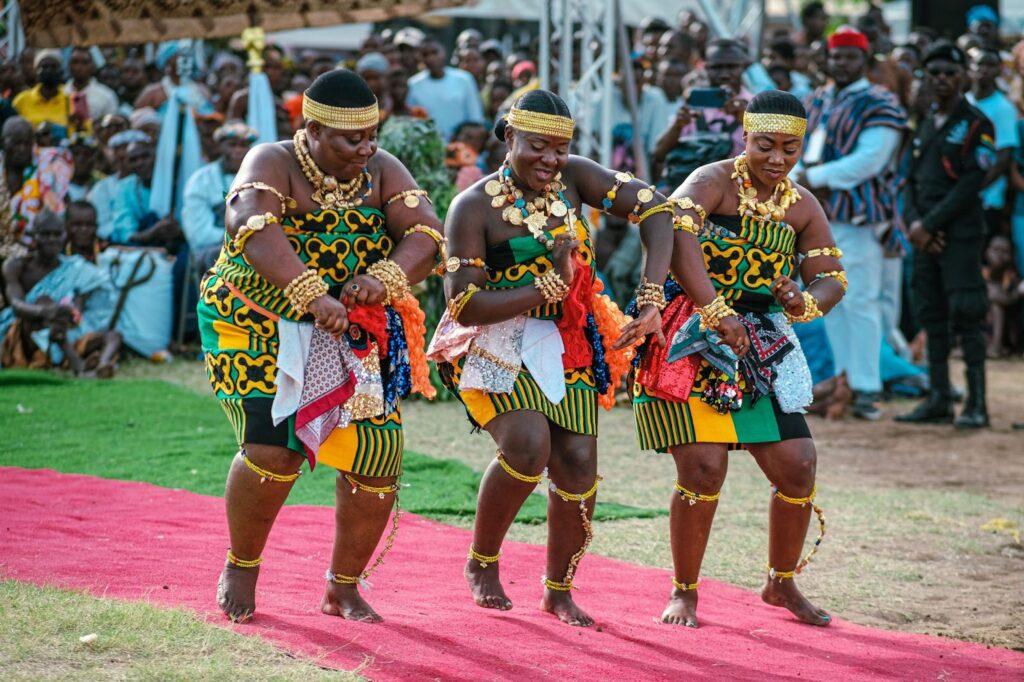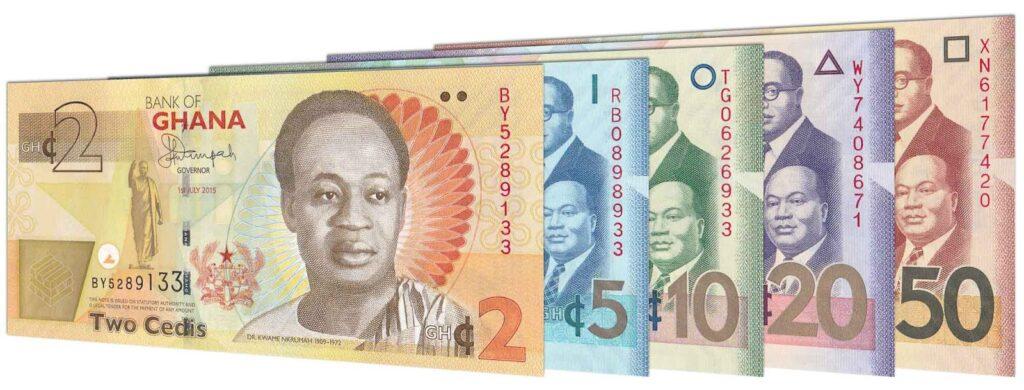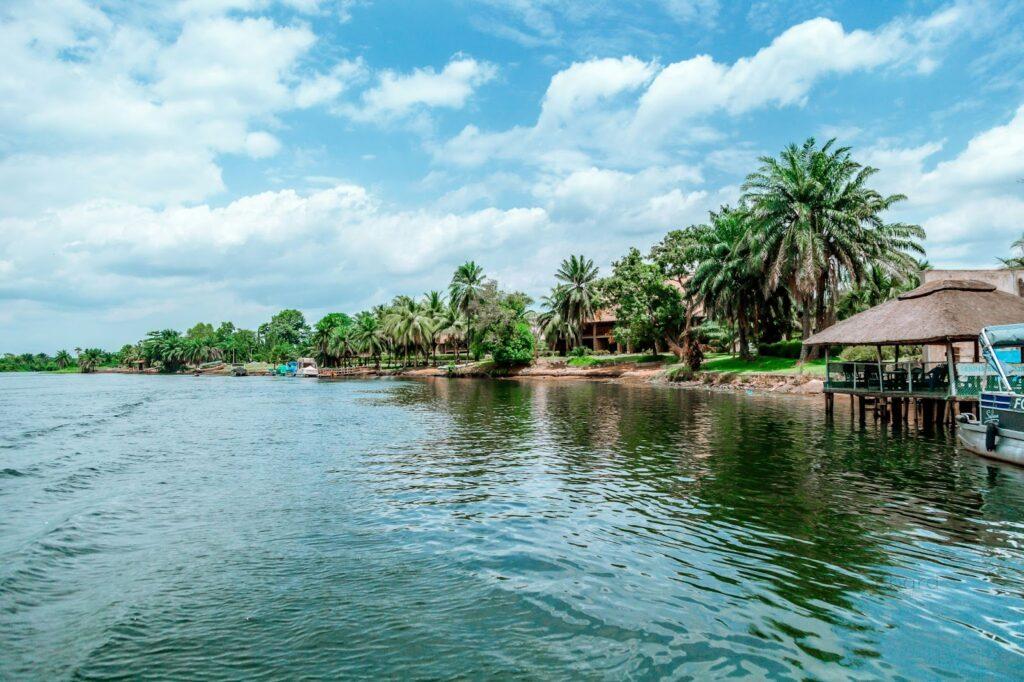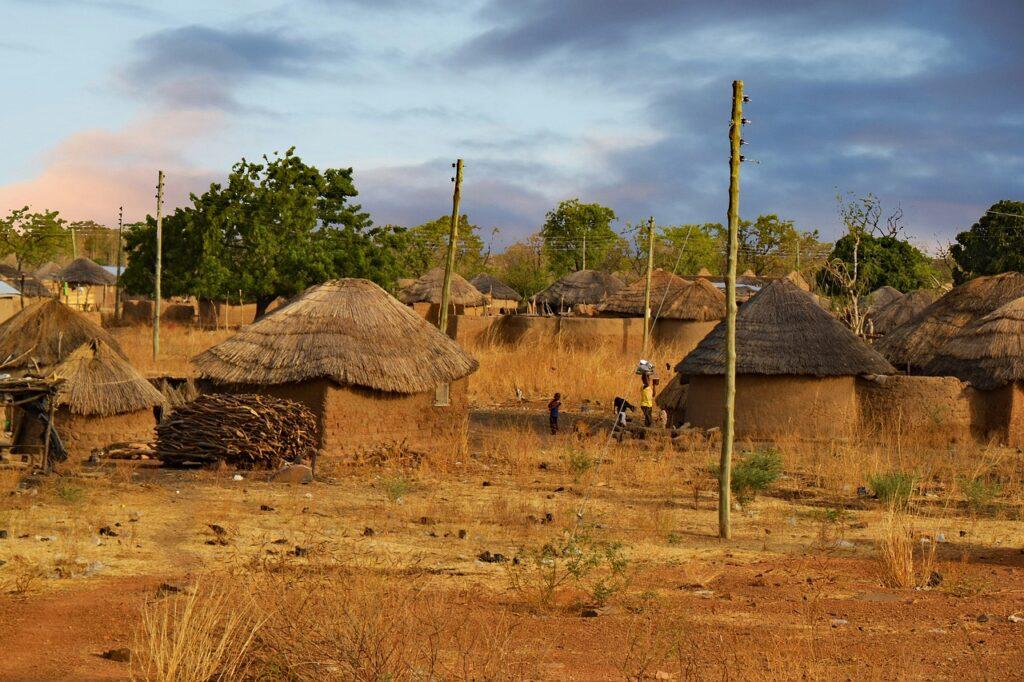
5 Fascinating facts about currency in Ghana
Have you ever wondered about the currency used in the vibrant nation of Ghana?
Whether you’re gearing up for a trip, fascinated by world currencies, or planning to exchange some cash, you’ve come to the right place!
Today, we’ll explore the fascinating world of currency in Ghana. We’ll cover everything from its rich history to its vibrant banknotes and practical coins.
We’ll also share some fun and quirky facts to keep things interesting. So, let’s embark on this monetary journey together!
What is Ghana’s currency called?
The currency in Ghana, Africa, is known as the Ghanaian cedi, abbreviated as GHS.
When you travel through this vibrant nation, you’ll use Ghana cedis, the currency essential to everyday transactions and the livelihoods of Ghana’s people.
Buy your cedi now
What is Ghana’s currency symbol?
Recognising the Ghanaian currency symbol is easy. It is denoted by ‘₵’, making it simple to spot when you’re checking prices or completing transactions.
Is Ghana a closed currency?
No, Ghana does not have a closed currency. The Ghanaian cedi can be exchanged internationally, making it accessible for travellers and those looking to invest in or trade with Ghana.

Get the Best Rates with Manor FX
Manor FX offers the most competitive online exchange rates for Ghanaian currency in the UK.
Planning a trip to Ghana? Prepare yourself for stunning landscapes and vibrant culture!
Before you embark on your journey, securing your travel money is crucial. Manor FX offers Ghanaian cedis at excellent exchange rates, ensuring your money goes further.
Choose home or office delivery, or pick up your Ghanaian currency in-store.
With our fast delivery and simple online order process, getting your Ghanaian cedis is a breeze. Quickly tick off one more item from your travel to-do list!
A journey through Ghana’s currency history
Ghana’s currency story is as colourful as its history. Long ago, people bartered goods, but as Ghana expanded its trade, coins were introduced, influenced by various rulers and traders.
During colonial times, Ghana used the British West African pound.
The introduction of the Ghanaian cedi in 1965, replacing the pound, marked a significant step towards economic independence. Ghana’s first president, Dr Kwame Nkrumah, played a crucial role in this transition.
Today, Ghana’s currency reflects its rich past, from ancient trade practices to colonial influences and beyond.

Ghanaian cedi banknotes
Ghanaian banknotes are quite special. They’re not just money but artworks showcasing the country’s culture and nature.
The Bank of Ghana issues banknotes in various denominations, such as ₵1, ₵5, ₵10, ₵20, ₵50, and even up to ₵200. Each note features colourful designs that tell a story about Ghana, from its wildlife and landscapes to its famous sites and notable figures.
These notes also have advanced security features to prevent counterfeiting, such as watermarks, security threads, and holograms. For those with visual impairments, there are tactile features to help differentiate the notes.
Occasionally, Ghana introduces new designs for its banknotes, highlighting past heroes or significant achievements. These notes are more than currency; they reflect Ghana’s journey and identity.
Ghanaian cedi coins
Ghanaian coins are like small storytellers, each encapsulating tales from the country’s past and present.
They come in denominations such as 1 pesewa, 10 pesewas, 20 pesewas, 50 pesewas, and 1 cedi, made from durable metals to ensure longevity.
The designs on these coins are noteworthy. Each one highlights something special about Ghana, from its wildlife to its cultural symbols.
For example, you might find the Black Star symbolising African freedom and unity or traditional Adinkra symbols, connecting the present with historical traditions.
Where else in the world uses Ghanaian currency?
Generally, the Ghanaian cedi is used exclusively within the Republic of Ghana.

Buy your cedi now
5 fascinating Ghanaian currency facts
Ghanaian currency holds a wealth of interesting stories and distinct features. Here are five intriguing and unexpected facts about the Ghanaian cedi:
- The cowry shell connection
The name “cedi” comes from the Akan word for cowry shell, which was used as currency in Ghana long before modern money was introduced. These shells were valuable and played a significant role in the local economy.
- Commemorating the “Big Six”
The one-, ten-, twenty-, and fifty-cedi bills all picture the “Big Six,” a group of leaders who played pivotal roles in Ghana’s independence movement. These leaders are celebrated for their contributions to Ghana’s history and are considered founding fathers of the nation.
- The Akosombo Dam on the 50 pesewa coin
The 50 pesewa coin features an image of the Akosombo Dam, a significant hydroelectric dam on the Volta River. This dam is a crucial part of Ghana’s infrastructure, providing electricity and boosting the economy.
- Transition from the Gold Coast
Before independence, the currency used in Ghana, then known as the Gold Coast, was the British West African pound. The introduction of the cedi in 1965 marked a significant move towards economic independence and a break from the colonial past.
- Cocoa beans on coins
Ghana is a major exporter of cocoa, and this is reflected in its currency. The twenty-pesewa coin features an image of cocoa beans, highlighting the importance of cocoa to Ghana’s economy. Other coins feature symbols such as scales for justice and books for education, emphasizing key aspects of Ghanaian society

FAQs
Need Ghanaian currency but don’t know what it’s called?
Since Ghana’s currency isn’t as globally recognised as the euro or the US dollar, many people are unsure what they need when they’re looking to purchase currency.
Often, they end up searching terms like “Ghana currency”, “currency in Ghana”, and “currency of Ghana”. What they’re actually after is the Ghanaian cedi. Keep this in mind for the future!
Do you sell Ghanaian currency at Manor FX?
Yes, we do! If you want to exchange your pounds for Ghanaian cedis, you’re in the right place!
Ordering your Ghanaian currency online is simple, and the best part is that we guarantee safe delivery through Royal Mail Special Delivery Guaranteed®. No hassle, just quick and secure delivery right to your home or office.
And if you’re near Heathrow, you’re in luck! Visit our foreign currency shop and pick up your Ghanaian cedis in person.
We’re dedicated to making your currency exchange process as smooth and convenient as possible.
Do you buy Ghanaian currency at Manor FX?
Absolutely! If you’ve returned with Ghanaian cedis from your trip, there’s no need to worry.
Click the link to convert your Ghanaian cedis back to pounds easily.
We’re dedicated to offering you great rates for your leftover cedis. We value your unused currency and aim to help you get the most out of it.
Exchange your Ghanaian currency to GBP with just a click. Start your hassle-free currency exchange experience right here!